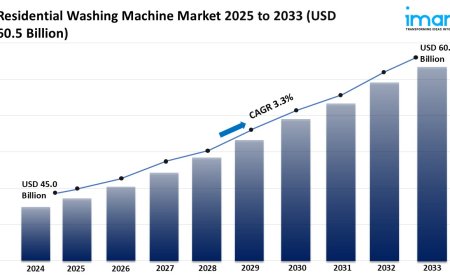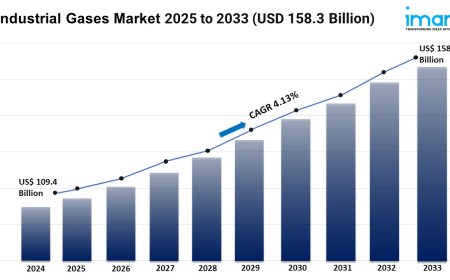What Is a SERP API? The Infrastructure Behind Scalable Search Intelligence
Discover what a SERP API is, how it works, and why it's essential for SEO platforms, agencies, and developers seeking real-time search engine data at scale.
Modern SEO is no longer guesswork or gut instinct. Today, its driven by data granular, real-time, and scalable across regions, devices, and search engines. At the center of this transformation is one critical tool: theSERP API.
Whether you're developing an SEO platform, running a digital agency, or building enterprise analytics pipelines, a SERP API delivers the raw search engine data that powers decision-making at scale.
In this guide, well cover:
-
What a SERP API actually is
-
How it works and what problems it solves
-
Who uses it and why
-
The core features to look for in a reliable API
-
Why SERPHouse is leading this space in 2025 and beyond
What Is a SERP?
A Search Engine Results Page (SERP) is the page displayed by a search engine like Google, Bing, or Yahoo in response to a users query.
This page now includes far more than just ten blue links. Depending on the query and context, it can contain:
-
Organic listings
-
Paid advertisements
-
Featured snippets
-
Local packs
-
Video carousels
-
People Also Ask (PAA) sections
-
Image blocks
-
AI-generated overviews
These results shift constantly, influenced by user location, device type, search intent, query phrasing, and algorithm updates.
Defining the SERP API
A SERP API is an interface that enables developers and platforms to request and retrieve live search engine result data in a structured format such as JSON without manual searching or scraping.
In technical terms, it allows applications to:
-
Send a keyword query to a search engine
-
Fetch the full results page programmatically
-
Parse those results into structured, analyzable data
-
Handle this process at scale, across geographies and verticals
This empowers teams to track rankings, identify content opportunities, monitor competitors, and respond to changes all with speed and precision.
Why SERP APIs Are Essential in 2025
Search is evolving rapidly. SERP features like AI Overviews, video snippets, PAA boxes, and map packs now dominate above-the-fold real estate. And personalization is making static rank tracking increasingly unreliable.
A SERP API solves the following core challenges:
-
Visibility: Know exactly what appears for any keyword and where.
-
Scalability: Track thousands of keywords across multiple regions and devices without manual effort.
-
Accuracy: Eliminate the inconsistencies of scraping and browser emulation.
-
Speed: Deliver real-time insights in minutes, not hours or days.
-
Adaptability: Stay updated as SERPs evolve, including AI-generated content.
Who Uses SERP APIs and How
SERP APIs support diverse use cases across industries and roles:
SEO Platforms and SaaS Companies
Incorporate real-time ranking data, featured snippet detection, and competitive intelligence directly into dashboards or user interfaces.
Marketing and SEO Agencies
Monitor client keyword performance, generate automated reports, and optimize campaigns based on actual SERP visibility not assumptions.
E-commerce and Product Teams
Track brand and competitor presence in shopping results, local listings, and AI Overviews. Identify missed opportunities by category or region.
Data Science and BI Teams
Feed structured SERP data into analytics pipelines, machine learning models, or content recommendation engines.
Developers and Startups
Prototype SEO products, build custom keyword monitoring tools, or create internal dashboards powered by live search data.
What to Look for in a SERP API
The right SERP API should do more than fetch results it should provide precision, stability, and extensibility.
Key features to prioritize:
-
Real-Time Data: Fresh, accurate results on demand
-
Multi-Engine Support: Compatibility with Google, Bing, Yahoo, and others
-
Location & Device Targeting: Ability to query by country, city, zip code, and device type
-
SERP Feature Extraction: Structured data for ads, snippets, videos, PAA, local packs, AI Overviews
-
Scalability: High-volume capacity with consistent performance
-
Clean Documentation: Clear developer guides, code samples, and SDKs
-
Uptime & Reliability: Guaranteed availability with robust support infrastructure
-
Compliance: Responsible data collection and adherence to industry best practices
SERPHouse: A Scalable SERP API Built for Todays Search Landscape
SERPHouse offers one of the most robust and developer-friendly SERP APIs on the market.
Key differentiators:
-
Full SERP Data: Organic, paid, map, video, PAA, and the newly added Google AI Overview API
-
Global Targeting: Support for over 100,000 locations and multiple languages
-
Speed & Stability: Real-time responses with >99.9% uptime
-
Modern API Design: REST architecture, token-based auth, clean JSON outputs
-
Flexible Plans: Suitable for small dev teams, scaling startups, or enterprise SEO solutions
Whether youre powering a rank tracking feature or conducting global SERP research, SERPHouses API infrastructure supports your scale and complexity without compromises.
Conclusion:
In 2025, SEO success is determined by what you can see and how fast you can respond. Static tools and legacy scrapers no longer deliver the agility modern teams need.
A reliable SERP API enables data-backed decisions, scalable strategy execution, and faster time to insight all without the overhead of managing your own infrastructure.
If you're serious about search visibility, product innovation, or competitive analysis, the SERP API is no longer optional. It's your competitive advantage.
Explore the SERPHouse SERP API
Start building smarter tools and better search strategies with live, structured, and complete SERP data. Get started now ?
















![Top 9 Real Estate Mobile App Developers in Riyadh, Saudi Arabia [2025 Edition]](https://www.biphoo.uk/uploads/images/202507/image_430x256_6879d0d524335.jpg)





















